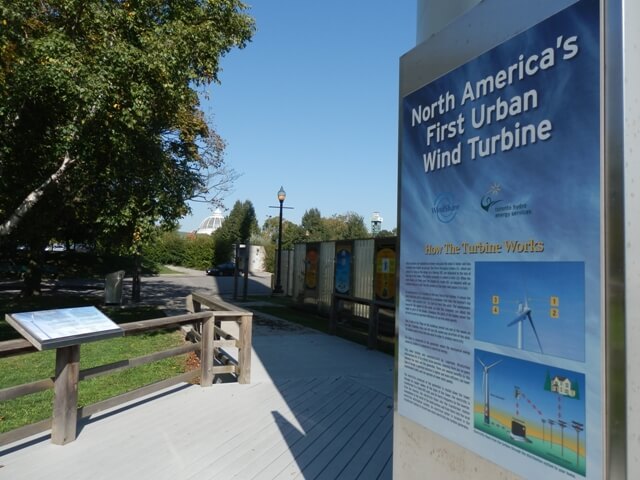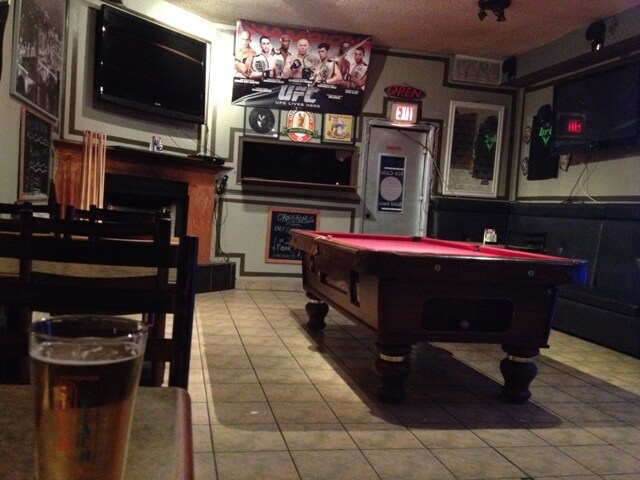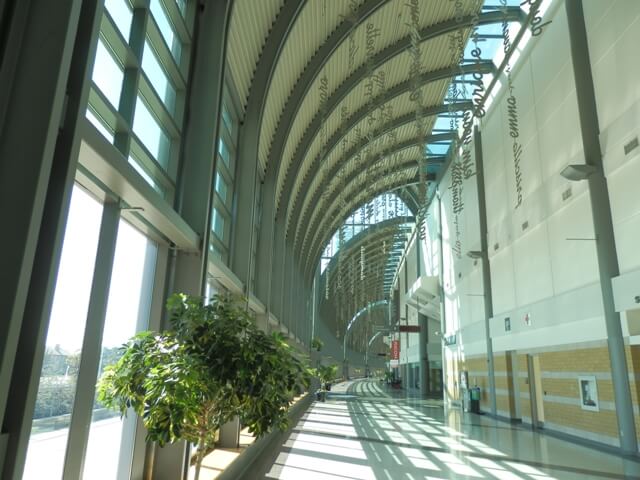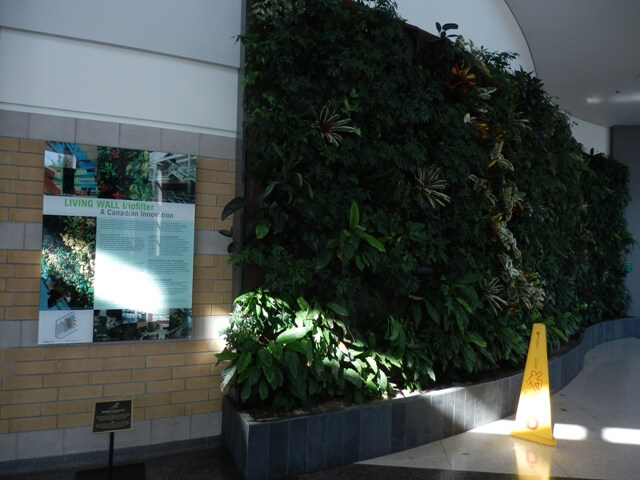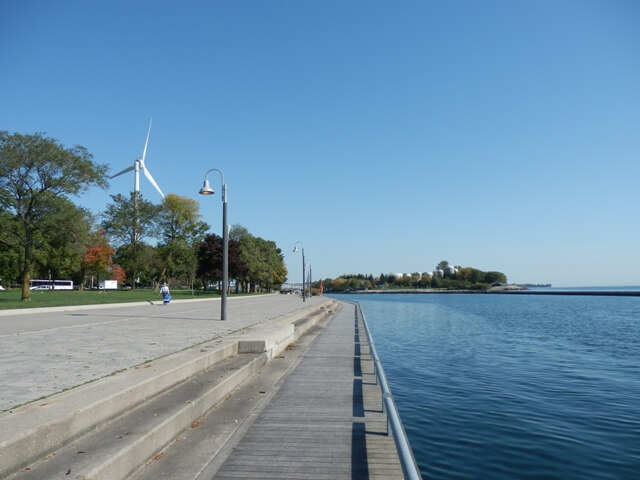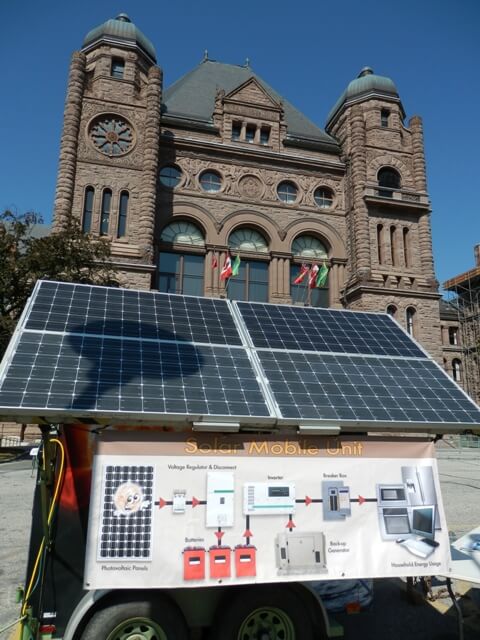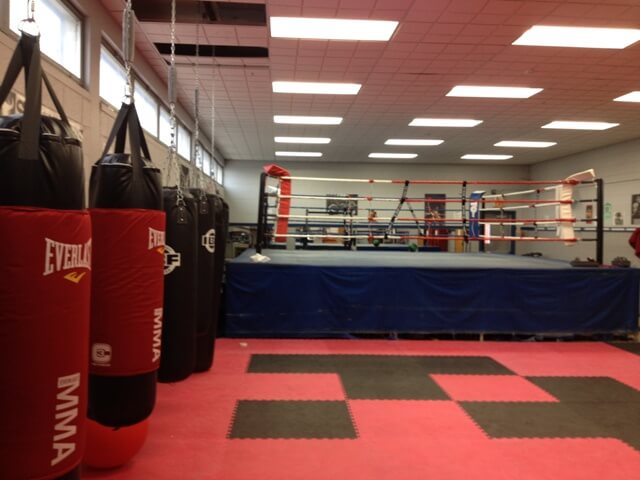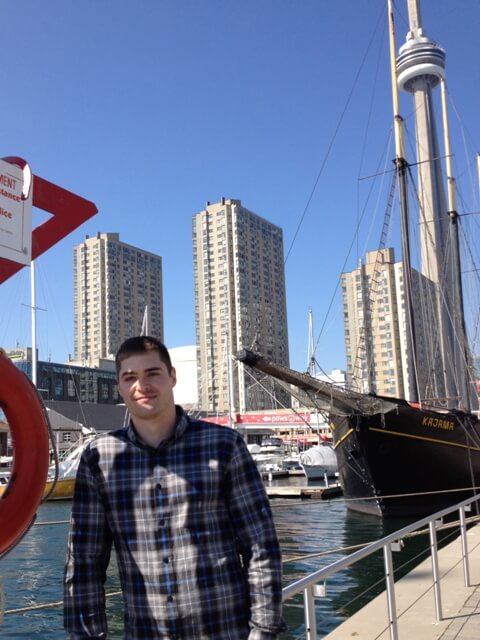1. How old are you?
I’m 29 years old.
2. Cape Breton born and raised? Or recent transplant? (Plus whatever biographical details you feel like giving).
Yeah, I was born and raised in CB, but after high school I headed west, and haven’t lived back home permanently since then.
3. “What are you up to these days?” I.e. what do you do for a living, what are you working on, are you a student, in the workforce, etc?
Last summer I moved from Whistler B.C., where I was doing landscape construction, to Toronto. I moved to go back to school and I’m just starting on a new career path taking a “Sustainable Energy and Building Technology” program at the Humber Institute. I plan to work in the sustainable construction industry after school.
4. Why did you decide to move off the island? Was it something you’d always known you would do?
I think growing up I always had a sense of adventure and wanted to explore the world. As soon as I finished high school I headed for B.C. and got a summer job planting trees. At that point there wasn’t a lot of work for young people on Cape Breton, and I also just wanted to see some more of Canada.
So I guess my primary reason for leaving was more about my desire for travel and adventure then a lack of work, but the cash was an incentive.
5. What are your favorite things to do when you do come back for a visit?
When I get home for a visit I usually catch up with old friends, hike through the woods, and just spend some down time in the hammock with a good book. When I was younger I was bored by the slow pace and relaxed lifestyle, but now I really appreciate the quiet peacefulness of my parents’ house out in the woods.
I also like to just spend time outdoors, hiking, camping at the beach, playing soccer and hockey and the occasional snowboard trip.
6. What do you like to do for entertainment?
Well, I spent the last five years snowboarding in Whistler. The big mountains and deep powder enticed me out west. While in Whistler I bought a dual sport motorcycle and spent a lot of time biking around exploring the mountains and back roads in the summer time. I also enjoyed the nightlife in Whistler, but last year I decided to take up boxing, and so I cut back on the clubs and the bar scene.
Now that I’m in Toronto, I’m just getting back into boxing, and exploring the city in my free time. But I don’t have much free time; I spend most of my time in school or studying.
7. When you chat with people out West about Cape Breton, what are their reactions and responses?
They either ask “Where is Cape Breton?“ or “Oh, you’re from Nova Scotia, so you’re a newfie?”
I was surprised at how little people know about Cape Breton. Most western Canadians that I met can’t even point to Cape Breton on a map, unless they grew up on the east coast. And in Whistler, Canadians are a very small percent of the population. And Toronto is mostly new Canadian immigrants, so it’s very multicultural. I really like being able to meet people from all corners of the world; there are so many different perspectives and worldviews.
I guess I don’t spend much time talking about Cape Breton, because the people I talk to don’t usually know anything about it.
However the Sydney tar ponds, Alexander Graham Bell, and Digby’s tidal energy plant have all come up in my class lectures.
8. Do you think you’d ever move back here? What would have to change for that to happen?
Yeah, I could see myself settling down in Cape Breton someday. But I haven’t really made that decision yet. Honestly, I don’t think anything would have to change. I’ve come to appreciate the fact that nothing ever changes when I go home. I used to want to change the island, make it more like other parts of the world, but now I’ve grown to really appreciate it for what it is.
If I do move home someday, it will be because I want to come home to the simple, relaxed lifestyle, the slow pace, and the sense of community. I guess considering my current studies, I’d like to come home and work on some sustainable projects, either construction, or maybe power generation. Nova Scotia has a lot of potential for renewable energy projects, and there has been some slow progress, but there’s still a long way to go to get the province off of coal and oil.
9. What is a typical “day in the life” for you, these days?
I commute an hour each way to school by transit. My bus from the subway to school takes 25 minutes and there’s always about 90 people crammed into a 36 seat bus. Being from Cape Breton I have a hard time adjusting to the city’s overcrowding and lack of personal space. After class I either do some homework or go to the gym. On the weekends I like to do some random wandering through the city. I like that I’ve been here for 7 months and I can still explore places I’ve never been to that are within a 15 minute walk from my house. Toronto has lots to do, and I’m still just getting to know my way around the city.
10. Finish this sentence: Being from Cape Breton, to me, means…
That no matter what happens to the rest of the world, I will always have a secret island paradise to escape to. In a world of exponentially accelerating change, it’s nice to have that safe haven where time stands still. As a kid growing up in the woods, I took the pristine untouched wilderness for granted. Now I consider it to be one of Cape Breton’s greatest assets. Its lack of economic development can be a challenge for the people living there, but that’s also what makes the island such a special place.
This Q+A with Zac is part of an ongoing series of interviews with people associated with Cape Breton in some way – mostly young people, but not necessarily. The complete list of interviews is here.


